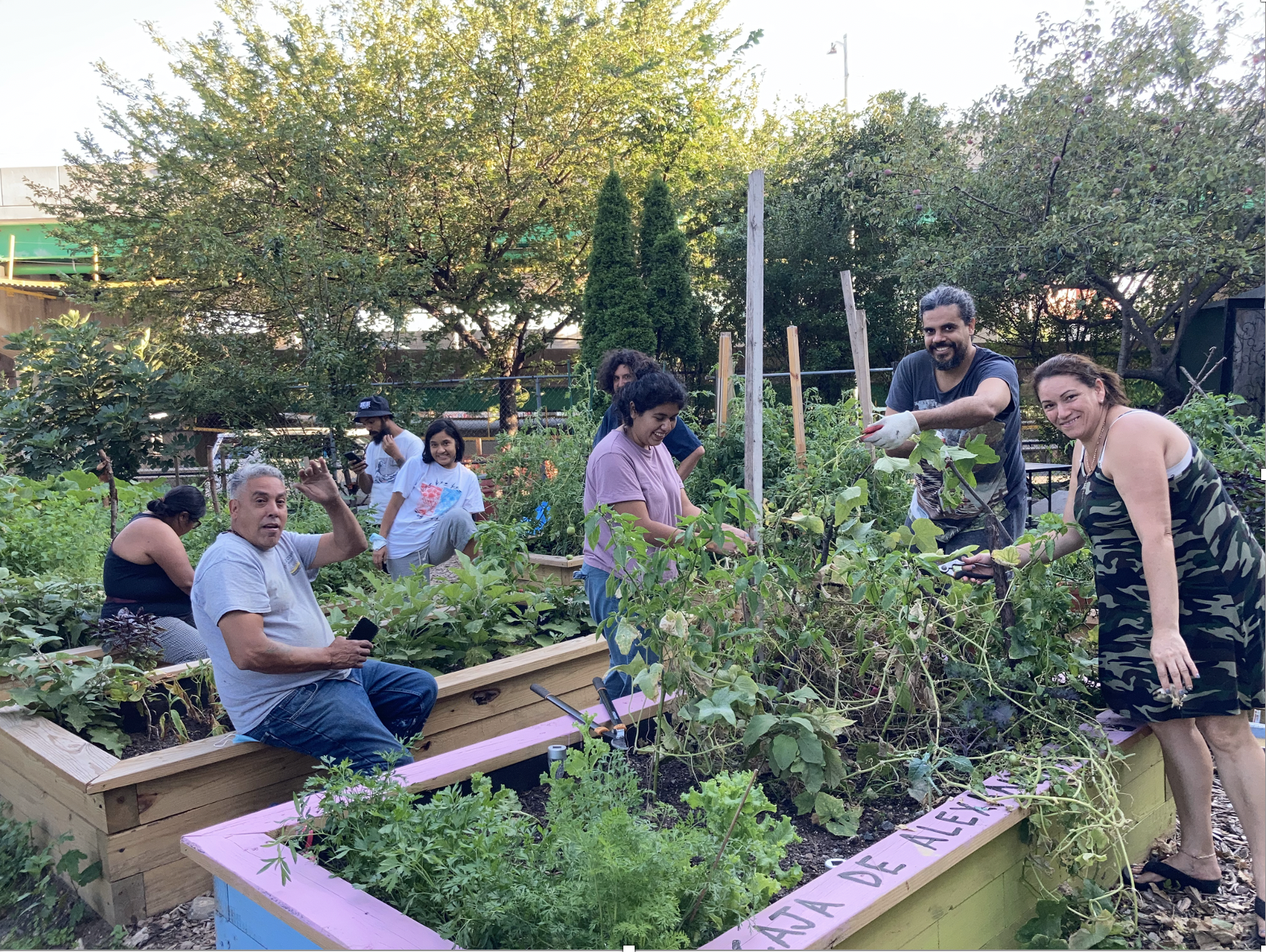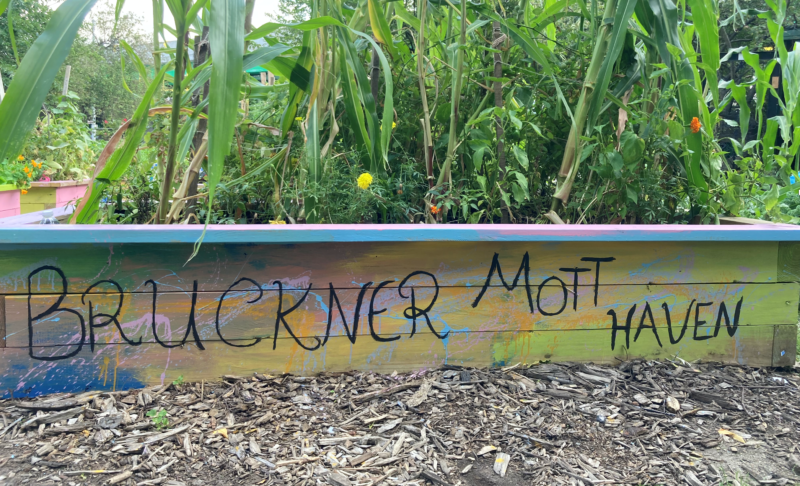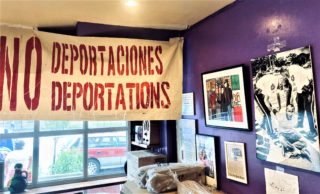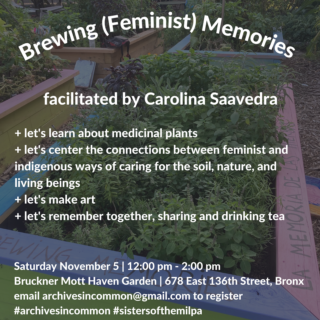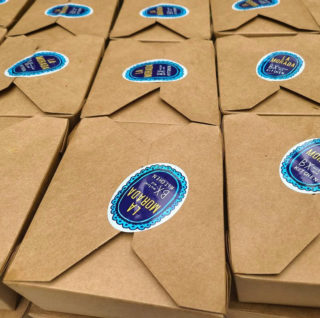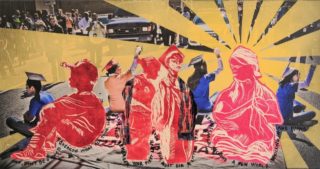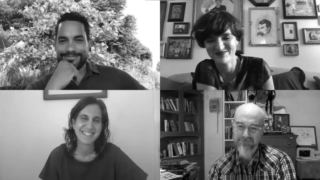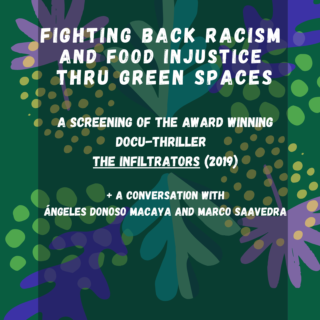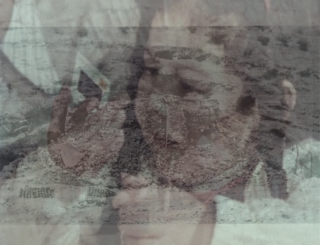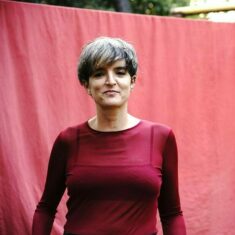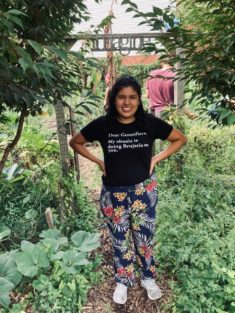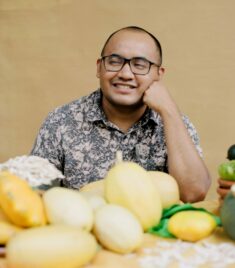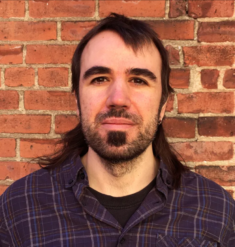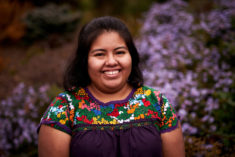Archives in Common is a collaborative project radically situated in the space-time of the pandemic as it has been lived in the South Bronx. The project and website can be thought of as a living archive of mutual aid initiatives and other collaborative and creative efforts devised since April 2020 by the Saavedras, an undocumented immigrant family of Mixtec origins.
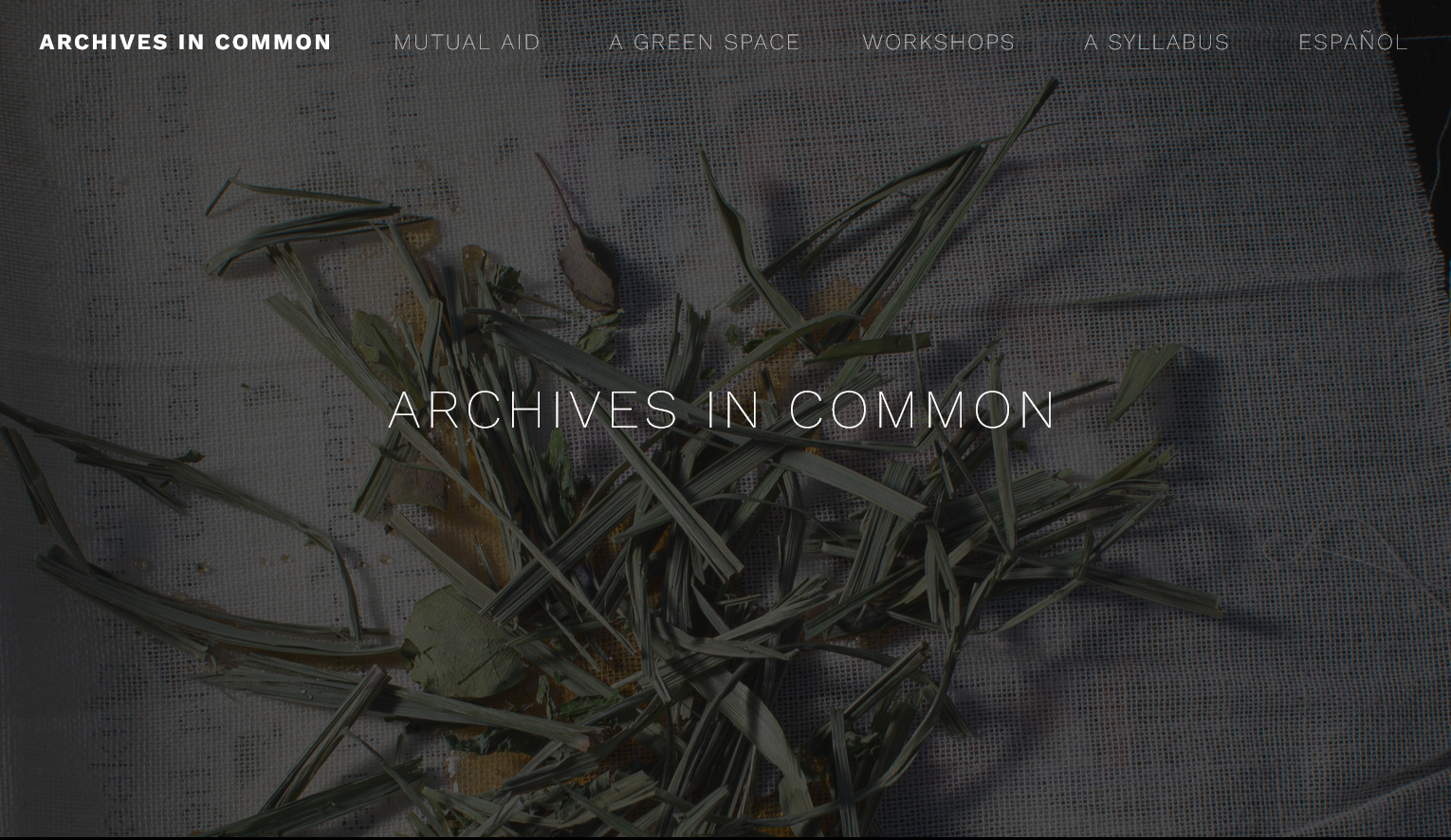
Conceptually, “Archives in Common” has sought to answer: How does one create an archive in common that is consistent with the mutual aid ethics? To be sure, there is a lasting memory of the many forms of resistance and survival that take shape in moments of need—mutual aid is not new. Meanwhile, if the archive is an operation—that is, if it’s more than the sum of documents contained within–then what forms does an archive in common take under a pandemic? These have been our guiding questions for the past two years—and continue to be.
Archives in Common foregrounds processes and not results, and the notion that documenting, learning, remembering, and studying are always intellectual practices held in common. That’s why during the Fall 2021 and Spring 2022 semesters, Carolina, Yajaira, and Ángeles have taken time to give presentations. For them, it is important to share their reflections and experiences after almost 2 years of collaboration.
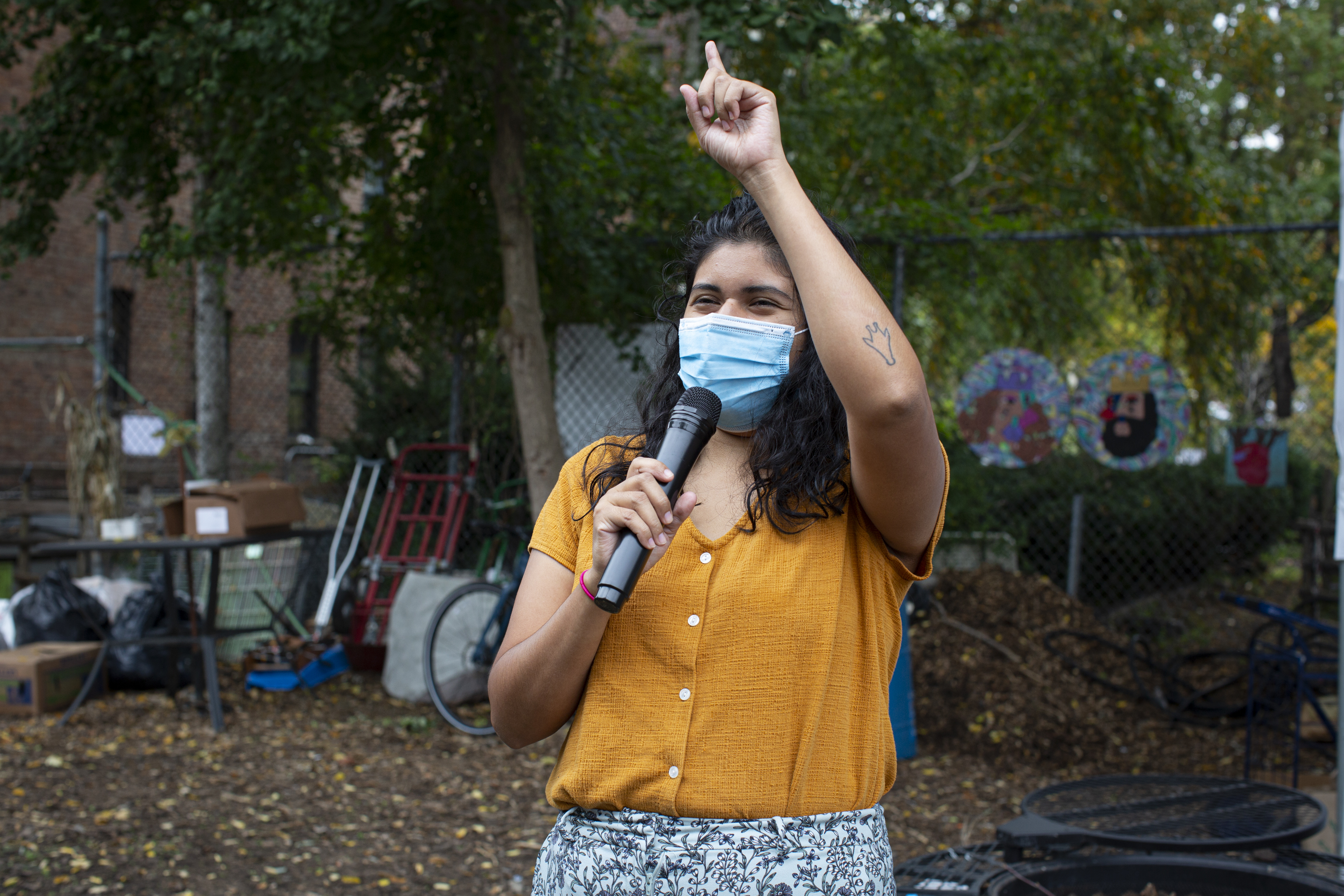
Giving presentations and getting feedback keeps nurturing this project. As Kendra Sullivan (Director of the Seminar on Public Engagement and Collaborative Research from the Center for the Humanities at the CUNY Graduate Center) says about this project:
“knowledge flowing between CUNY and NYC communities surfaces essential ways of knowing and worlding that remain covered over when academic/nonacademic spaces remain siloed and where artificial borders between CUNY/the city, the expert/non-expert, the academic/organic intellectual, and local knowledge/technical expertise remain intact. What's more, so many CUNY students are looking—through CUNY—for an entryway into and role to play in the social, political, economic, and cultural decision-making practices of NYC. Relationships like the one Donoso Macaya and Saavedra are crafting create and maintain opportunities for CUNY faculty and students and community partners to shape and reshape—in concert—the city they share.”
Below we share a brief summary of these presentations, and also some updates about the garden, where most of the activities organized by Archives in Common are taking place.
Because the archive to come is a garden!
Archivos del común IV (Madrid, October 2021)
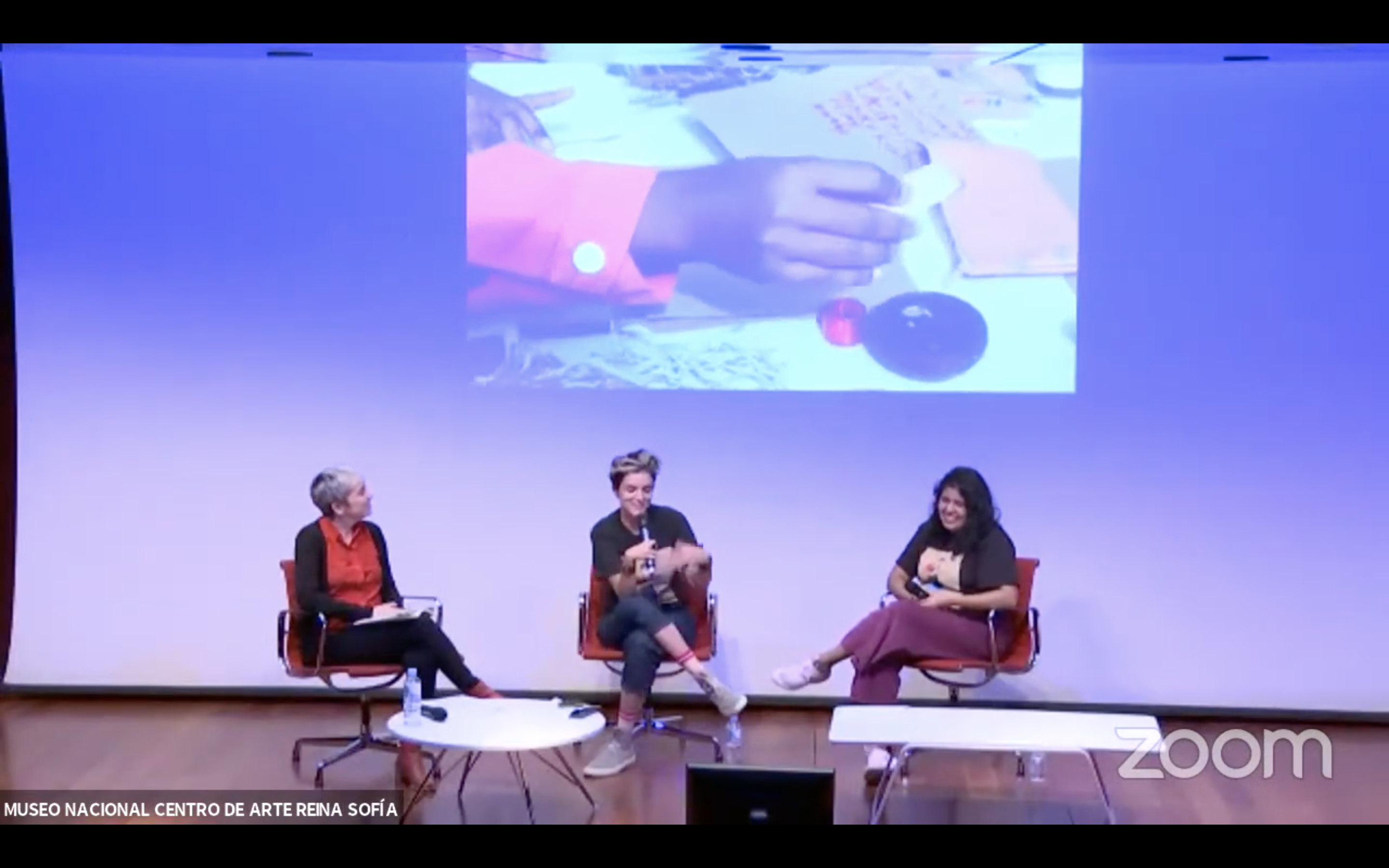
In October, 2021, Ángeles, Carolina and Lila (Carolina’s daughter) traveled to Madrid to participate in the Seminar Archivos del común IV, Archivos por/venir, organized by the Red Conceptualismos del Sur and the Reina Sofía Museum. The seminar took place at the Museum between October 26 and October 30.
Carolina and Ángeles were part of the panel “Archivos de/en pandemia”. They talked about the effects of the pandemic in the South Bronx, shared the basic tenets of Archives in Common and their experiences collaborating in the Brewing memories workshops; they also talked about the rehabilitation of the Bruckner-Mott Haven gin the garden and how growing and harvesting veggies, and planting herbs and flowers a form of building an archive to come in the present. (More about the garden rehabilitation below!)
The video recording of that conversation (parts of it are in Spanish and parts in English) can be found here.
On their trip back, Ángeles wrote a short poem-reflection about these connections (English translation below).
El archivo por venir es un jardín
El archivo por venir es una huerta.
El archivo por venir es de semillas.
Es un archivo en la tierra,
un archivo de la tierra,
un archivo que germina,
un archivo que da frutos,
un archivo que convoca a insectos: gusanos, chanchitos de tierra, mariposas, abejas,
un archivo que convoca también manos amigas, manos que cuidan.
Este es un archivo verde,
|un archivo de hierbas medicinales,
un archivo de flores,
un archivo violeta,
un archivo amarillo,
un archivo naranja,
un archivo marrón
Archivo barro.
Archivo agua.
Archivo tierra.
Archivo hojas.
Este archivo estimula la creatividad.
Este archivo se deja oler.
Este archivo se deja tocar, entierrar, podar.
Es un archivo que se mueve con el viento,
un archivo que practica la fotosíntesis,
un archivo de olores diversos,
un archivo de gustos diversos,
Un archivo que repara el suelo y el aire.
Un archivo que sana el alma.
Un archivo que imaginamos como la memoria de las hierbas.
Un archivo que cultivamos, cuidamos y compartimos en común,
Un archivo que emerge en medio del presente pandémico del sur del Bronx,
archivo-semilla plantado en medio de carreteras ruidosas, talleres mecánicos y bombas gasolineras.
archivo-semilla que germina y resiste los embates del racismo ambiental: la tierra contaminada con plomo, los residuos de basura plástica que emergen aquí y allá, las ratas y sus ratoneras.
archivo-semilla que desea más verdes, más organismos, más chanchitos de tierra, más abejas
Un archivo-semilla que germina y que se desborda.
The archive to come is a garden
The archive to come is a vegetable garden.
The archive to come is a seed.
The archive to come
Is of/in the present, it exists in the here and now.
It is an archive on earth,
an archive of the earth,
an archive that germinates,
an archive that bears fruit,
an archive that invites insects: worms, rolly pollies, butterflies, bees,
an archive that also calls for friendly hands, hands that care.
This is a green archive,
an archive of medicinal herbs,
an archive of flowers,
of violet,
of yellows,
of oranges,
of greens,
of browns.
A mud archive.
A water archive.
A soil archive.
A dry leaves archive.
This archive stimulates creativity.
This archive is allowed to smell.
This archive allows itself to be buried, pruned.
It is an archive that moves with the wind,
an archive that practices photosynthesis,
an archive of diverse smells,
an archive of diverse tastes,
An archive that repairs the soil and the air.
An archive that heals the soul.
An archive that we imagine as the memory of the herbs.
An archive that we cultivate, care for and share in common,
an archive that emerges in the midst of the current pandemic in the South Bronx,
an archive-seed planted in the midst of noisy highways, garages and gas pumps.
An archive-seed that germinates and resists the attacks of environmental racism: the soil contaminated with lead, the plastic waste that emerges here and there, the rats and their mousetraps.
An archive seed that desires more greens, more critters, rolly pollies, bees, butterflies, worms,
An archive-seed that germinates and overflows.
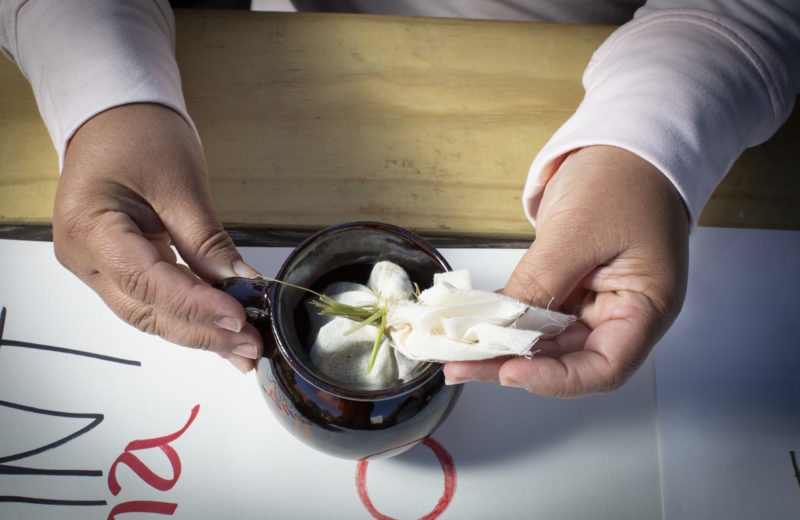
The Feminist Art Project Day(s) of Panels @ the CAA 2022 (via zoom, February 2022)
At the 2022 Feminist Art Project Day(s) of Panels, "Feminist Solidarities and Kinships,” Yajaira and Ángeles presented about Archives in Common and talked about the situated account of mutual aid organizing they have been building, and also about the importance of demanding for accountability. Their presentation centered on La Morada’s mutual aid timeline, a living archive that details mutual aid efforts chronologically, from April 2020 to date, provides tallies of all the hot meals and pantry boxes served and distributed weekly, and also demands for accountability.
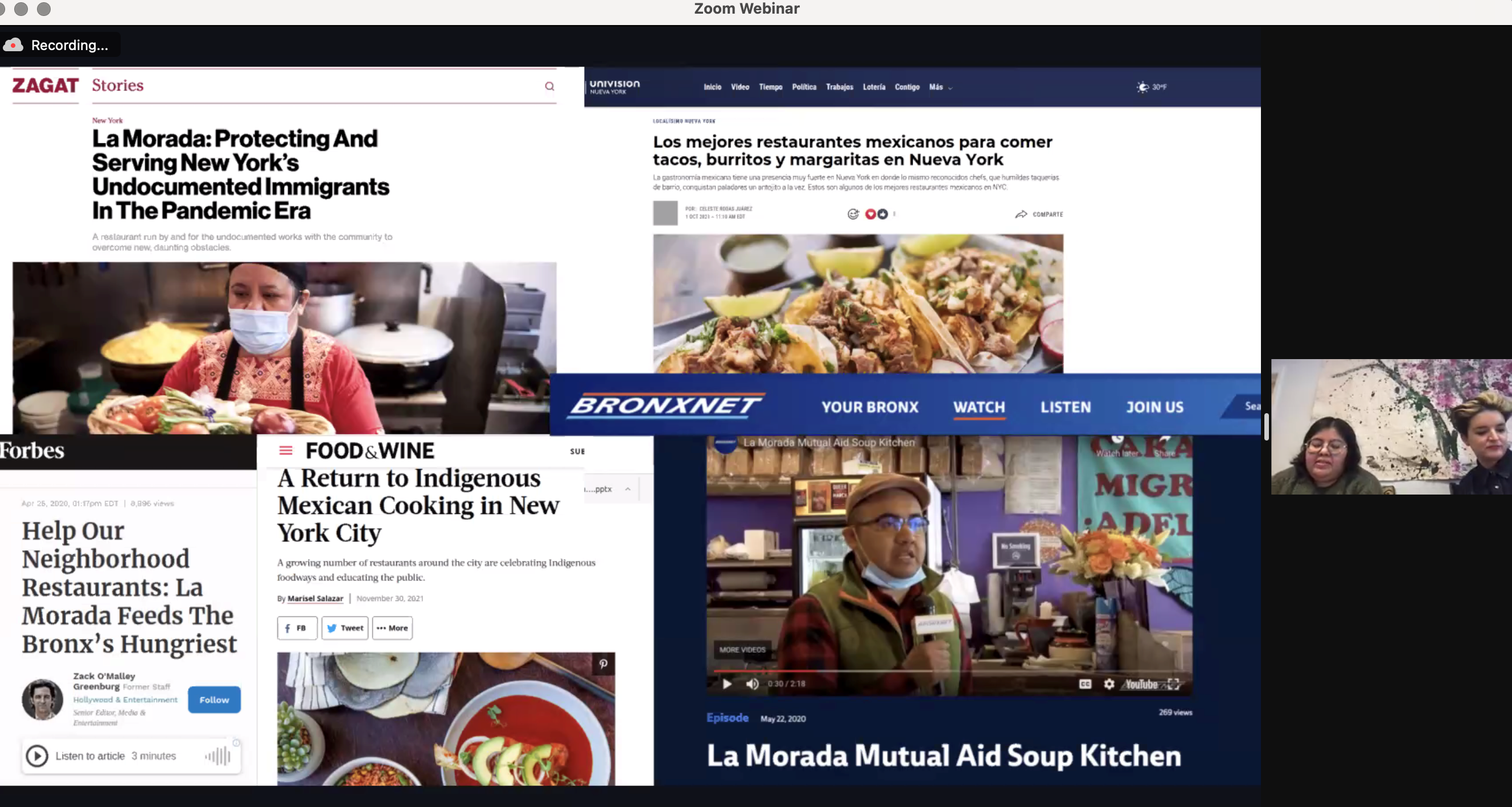
A Feminist Oral History, a course taught by Professor Crystal Baik (via zoom, March 2022)
Carolina and Ángeles were invited to talk with students of this Gender & Sexuality Studies course about the Brewing Memories workshops and their experiences as collaborators. In the talk, they explained how in addition to developing more organic ways of doing collaborative work, ways that emerge and are formulated along the different activities and projects, they were also interested in being able to share these ways of doing, talk about them with others who in turn can collaborate and educate others.
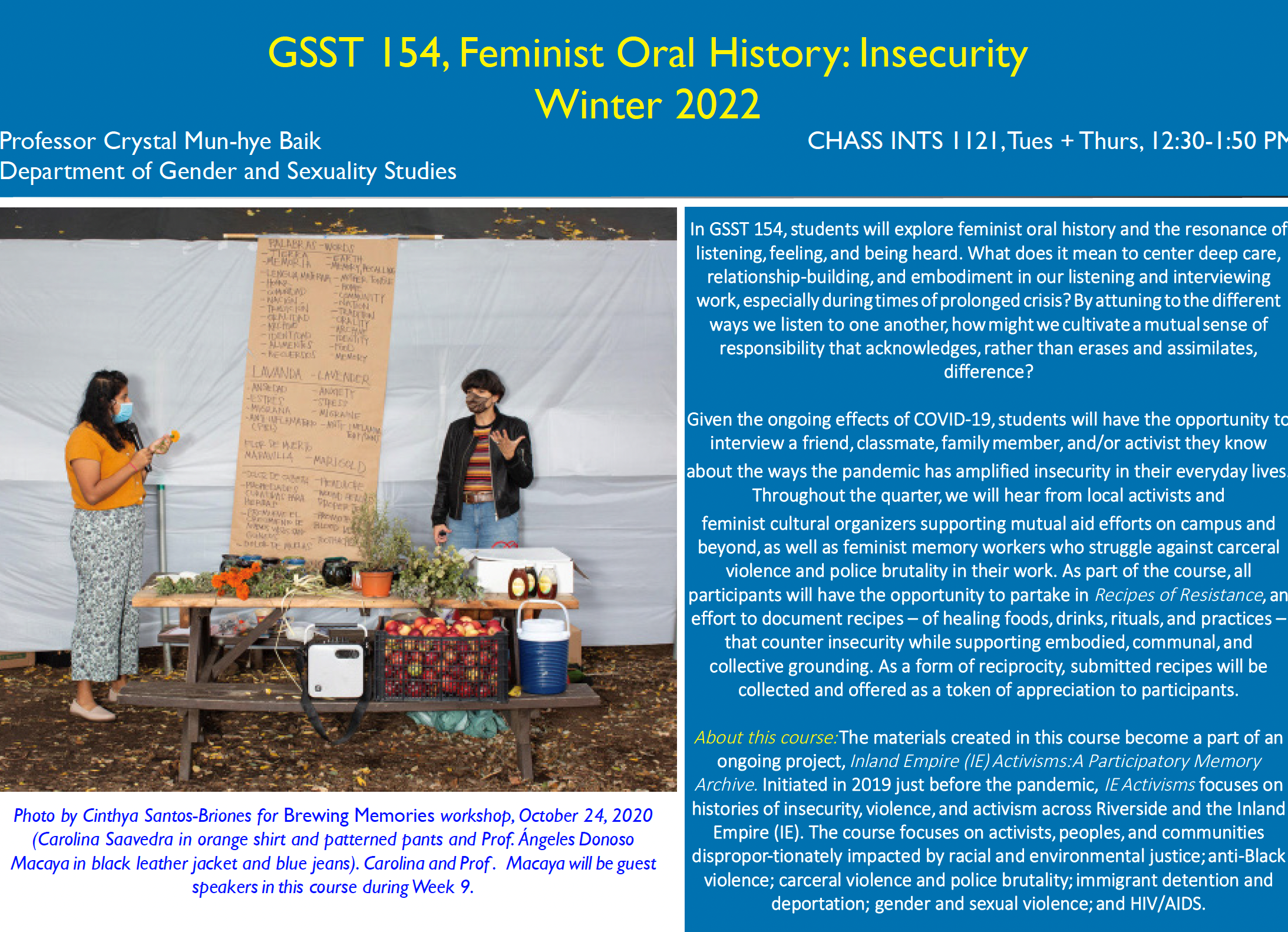
Congratulations Dr- Natalia!
We are also excited to share fantastic news that connects in a different way La Morada restaurant to CUNY. Natalia Méndez, owner and head chef of La Morada, who will be awarded an honorary doctorate of humane letters at the 2022 Lehman Commencement.
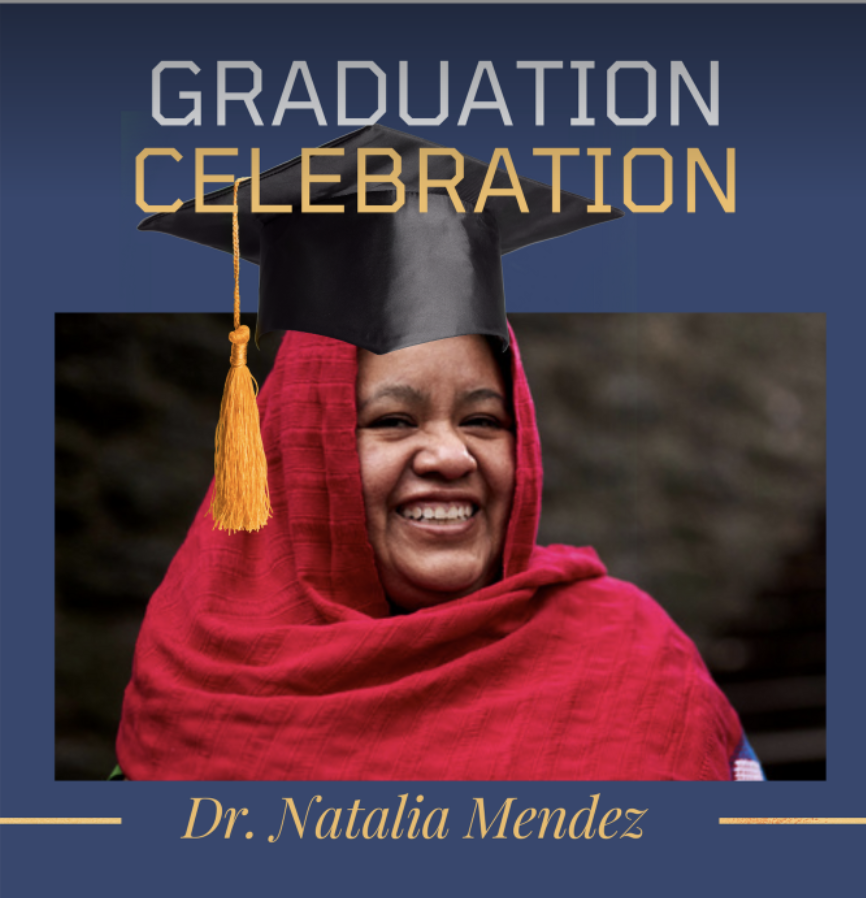
“Lehman College will mark a milestone this May, holding its first in-person commencement ceremony since the start of the pandemic. And as it celebrates the class of 2022 and the resilience of the borough it calls home, it will recognize three public health and social justice activists whose work has improved—and saved—countless lives in the Bronx. Those trailblazers, all women, will each play a role in the ceremony, with two set to receive honorary degrees.”
Rehabilitating and Sustaining Life at Bruckner-Mott Haven Garden
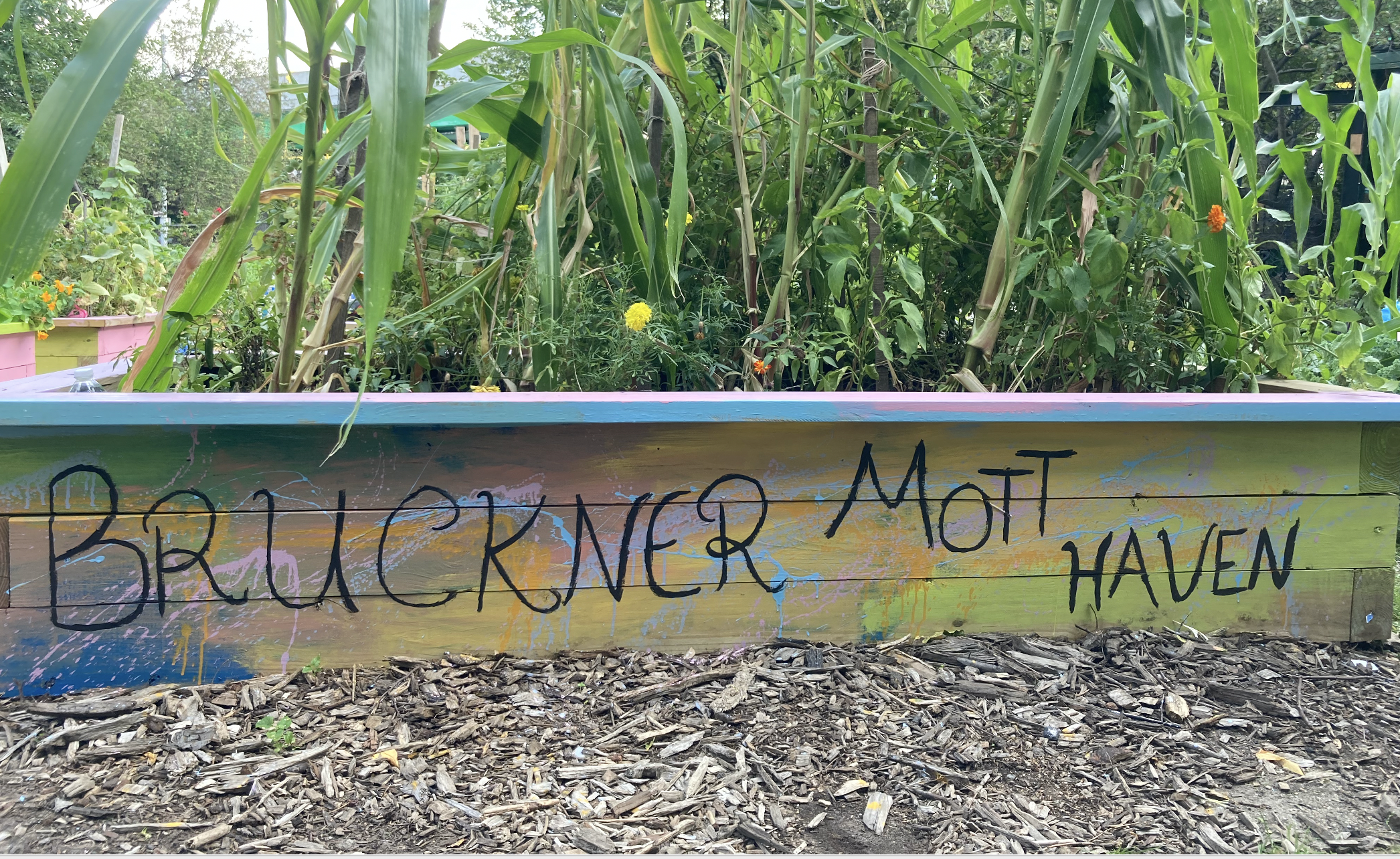
Originally founded as Cherry Tree Garden in the late 1980s by a group of immigrant artists, activists, and squatters who shared the vision of having a collective space to make art and build community, Bruckner Mott Haven Garden re-opened in 2021, thanks to the efforts of Carolina, who stepped up as garden president and steward in April 2021. She convened a group of community organizers and volunteers from La Morada Mutual Aid Kitchen and Archives in Common to rehabilitate the green space: remediating the soil, building raised beds, planting transplants, herbs, and vegetables, and organizing a system of engaged, self-governance to manage garden cleanup and to organize workshops.
Here is a short video Pedro Cabello Del Moral did about the garden rehabilitation:
In Spring 2021, Carolina and Angeles began hosting Brewing Memories workshops at the garden, using the herbs they themselves planted there:
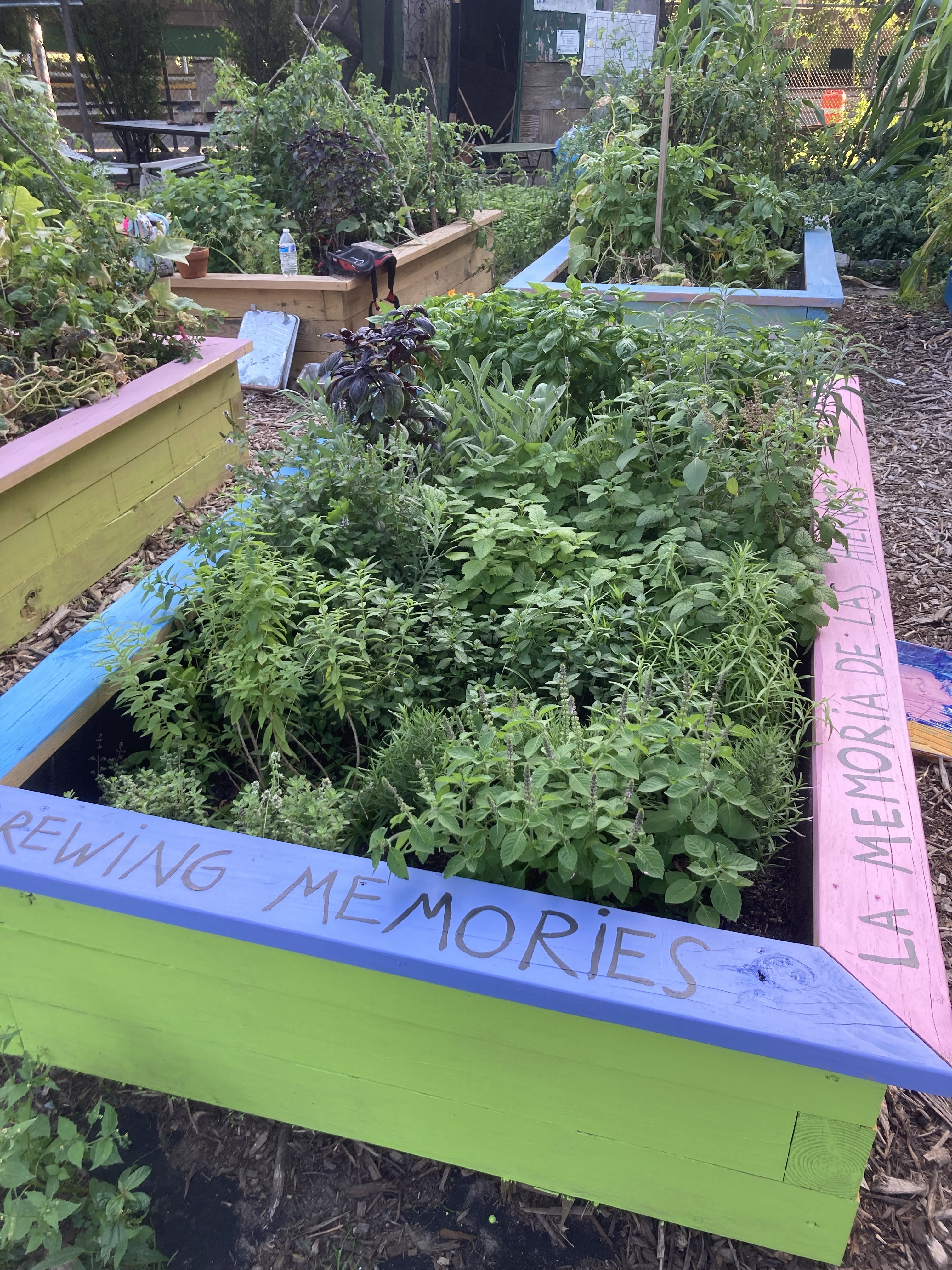
Here are a few photographs documenting the garden rehabilitation for Brewing Memories workshops:
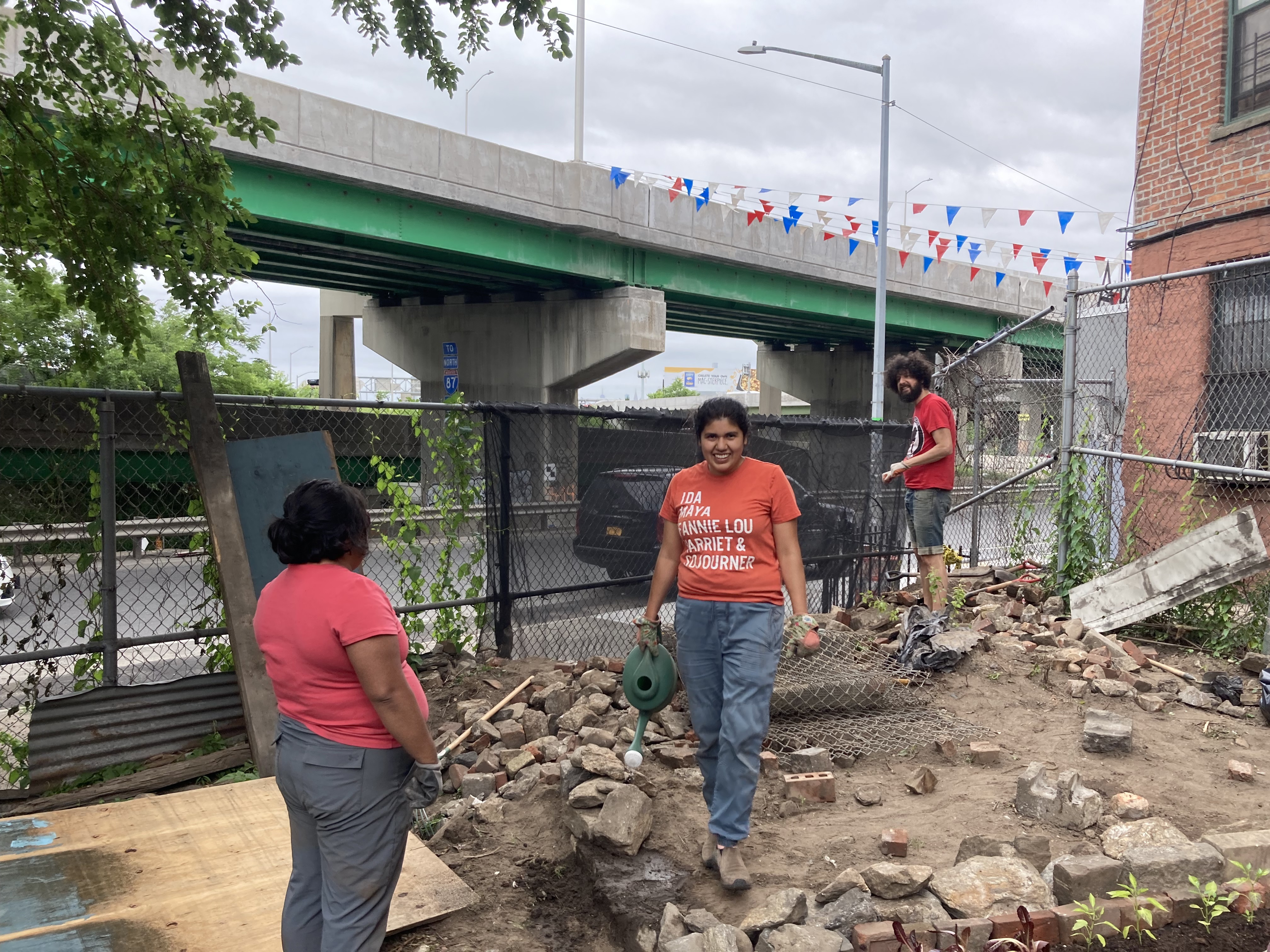
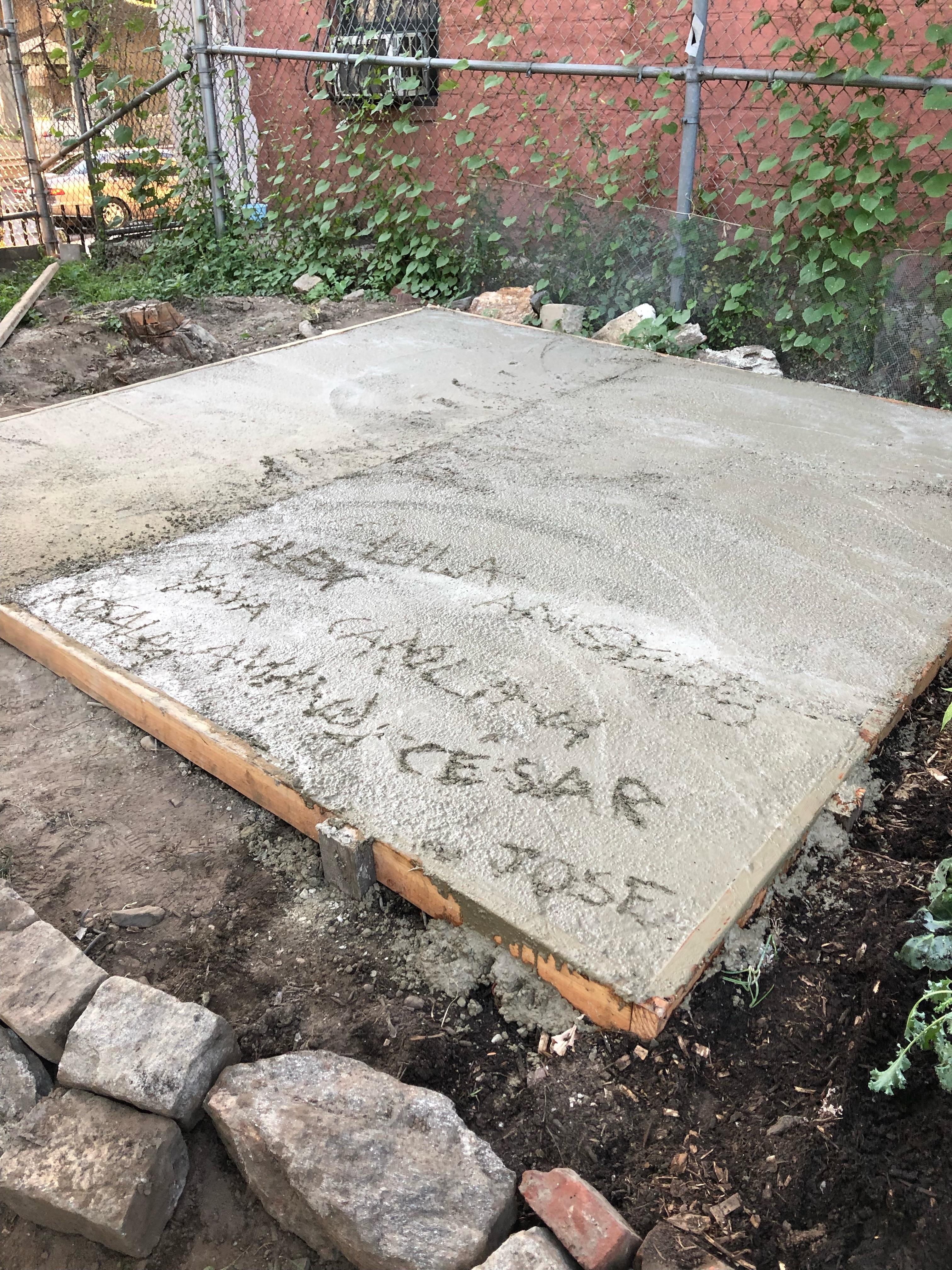
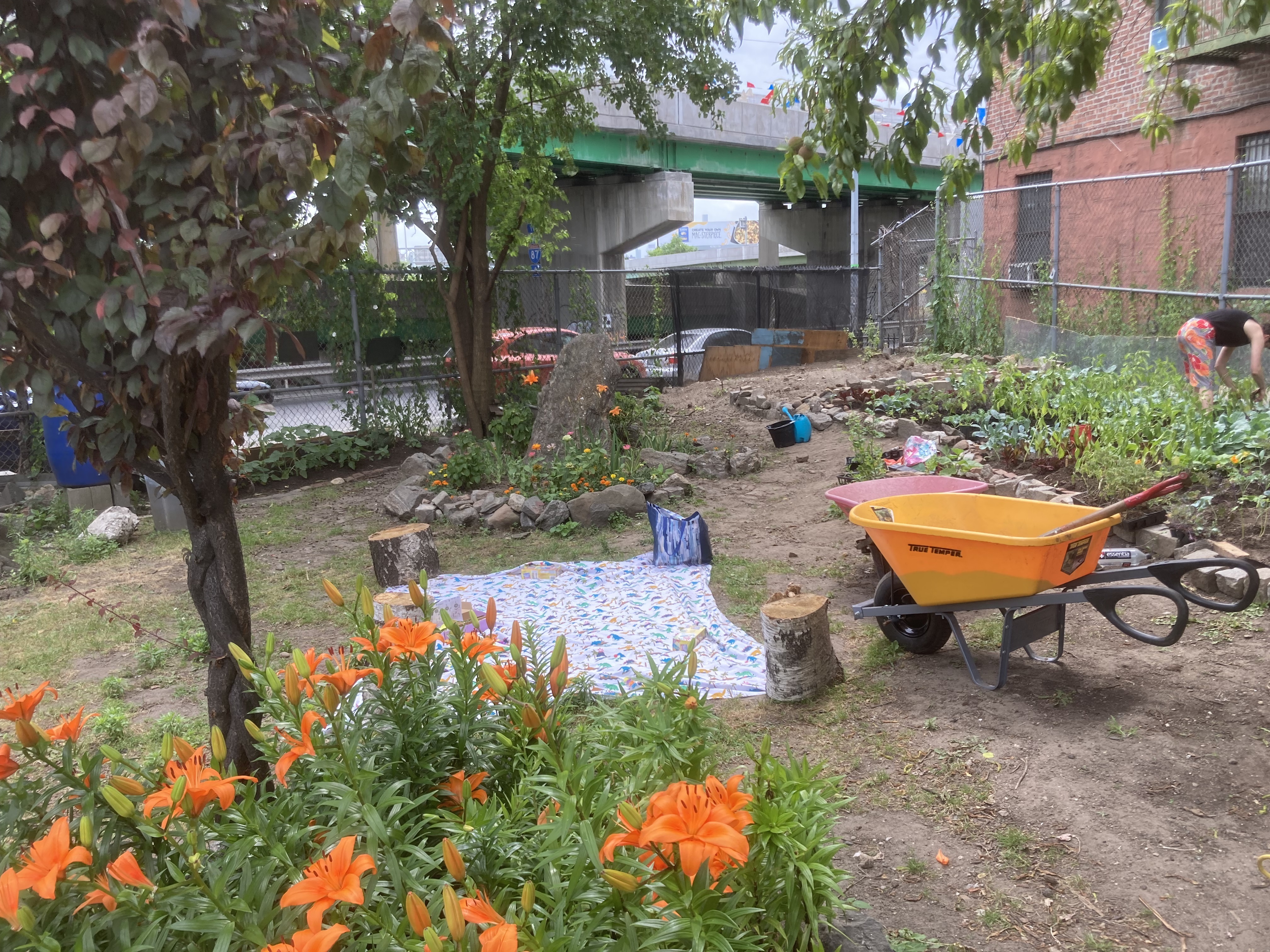
In the summer of 2021, garden members organized an inauguration party and invited all community members. Marco curated an outdoors art exhibit and many neighbors came to taste delicious food prepared by Ghetto Gastro:
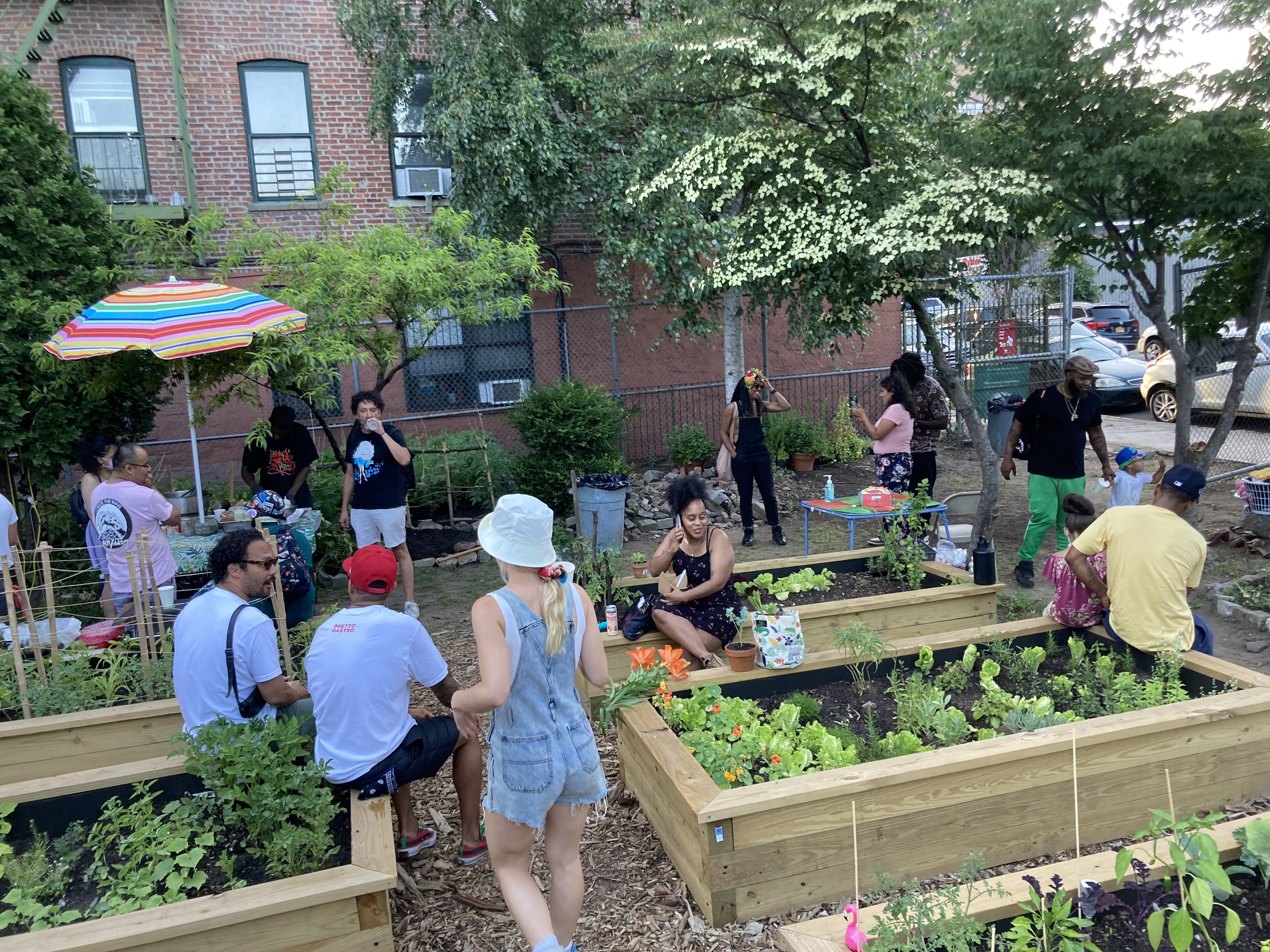
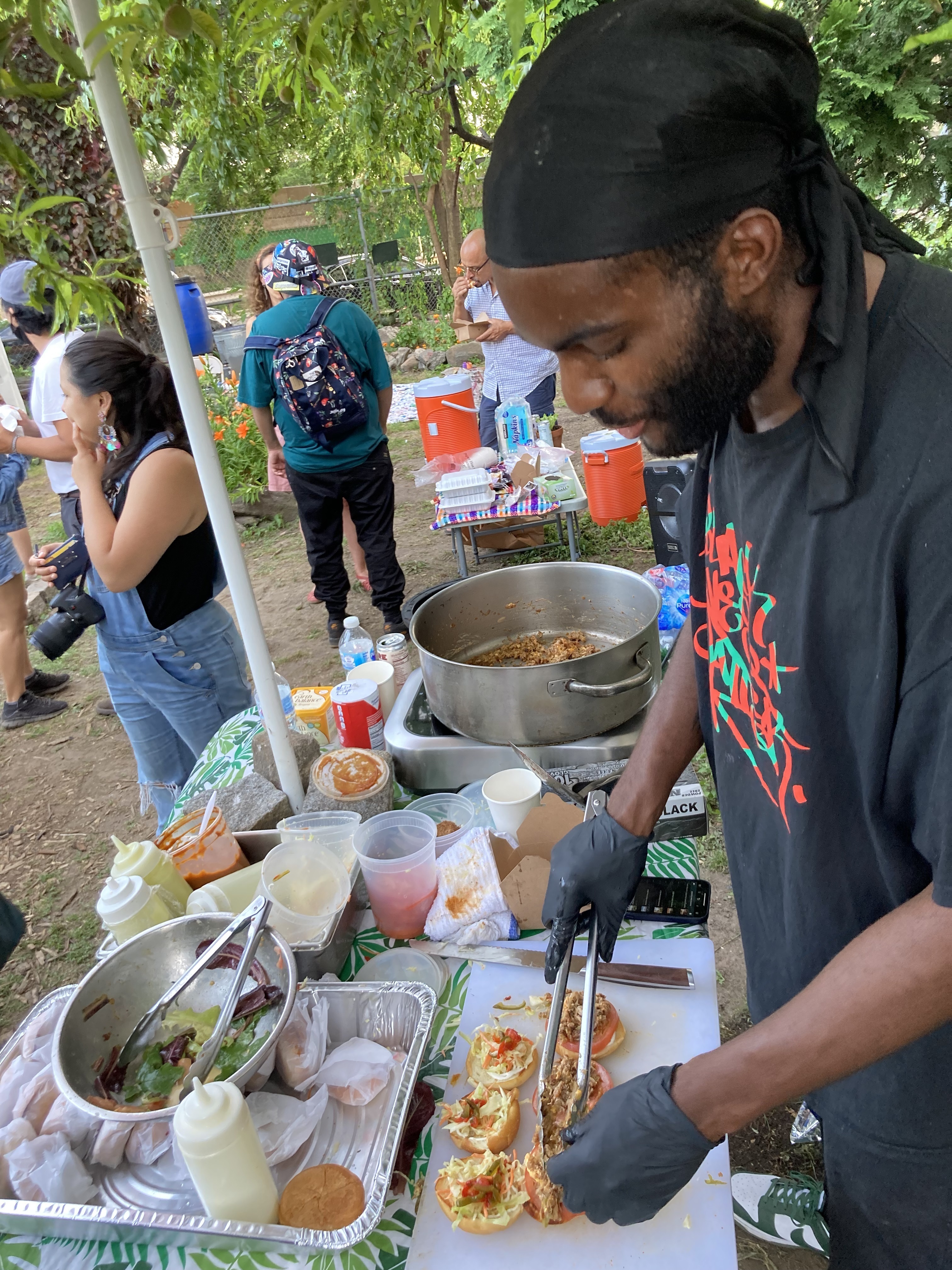
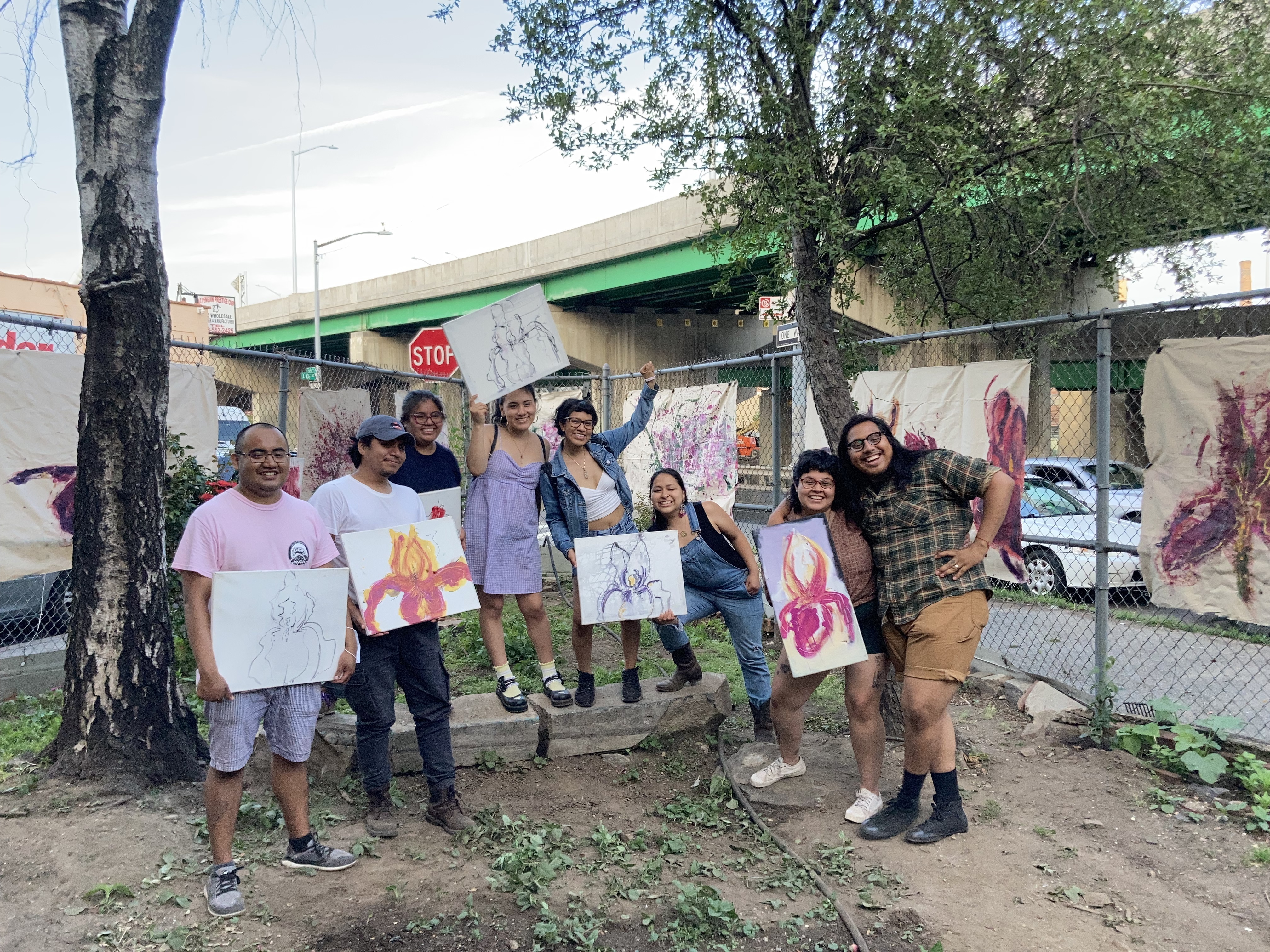
What’s Next? Bruckner Mott Haven Garden @40
The history of the garden surfaced at the inauguration party, in part because three of its founding members were present, including Nieves Ayress and Virginia Ayress. The encounter and subsequent conversations planted the seed for the next stages of the project, namely, a community narrative of the space and its uses: Bruckner Mott Haven Garden @40. This initiative is being sponsored by a Humanities NY Action Grant in partnership with The Center for the Humanities at CUNY Graduate Center. So, during the Summer and Fall of 2022, we will be hosting a series of workshops at the garden. Our aim is to bring neighbors together to weave their narratives of place-making in the South Bronx, counter-narratives that work against erasure and gentrification.
The first workshop, “Digitizing Memories,” facilitated by artists and photographers Roy Baizan and Odalys Burgoa, will take place on June 18th, 2022. Odalys and Roy will facilitate a scanning table to help Mott Haven residents to archive photos. Archiving photos is important to preserve traditions, create intergenerational connections and share stories. Workshop participants will be encouraged to bring 2 or 3 photos (maximum sizes 8x11) of relatives, loved ones, friends, special events or of any memory they would like to preserve. This will be a free workshop, suitable for all ages.
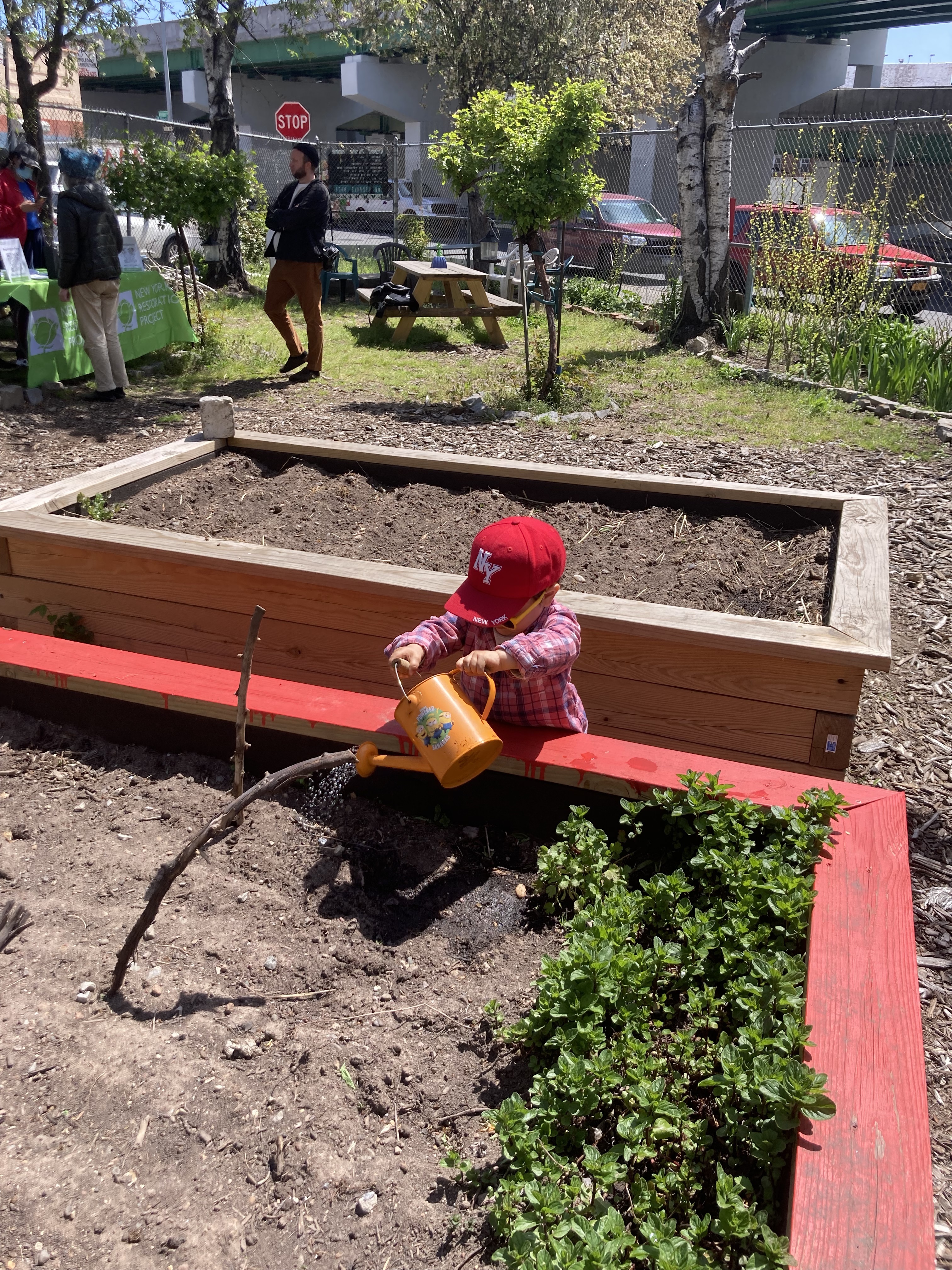
We are currently getting ready for the new season, and looking forward to hosting different workshops and activities throughout the summer.
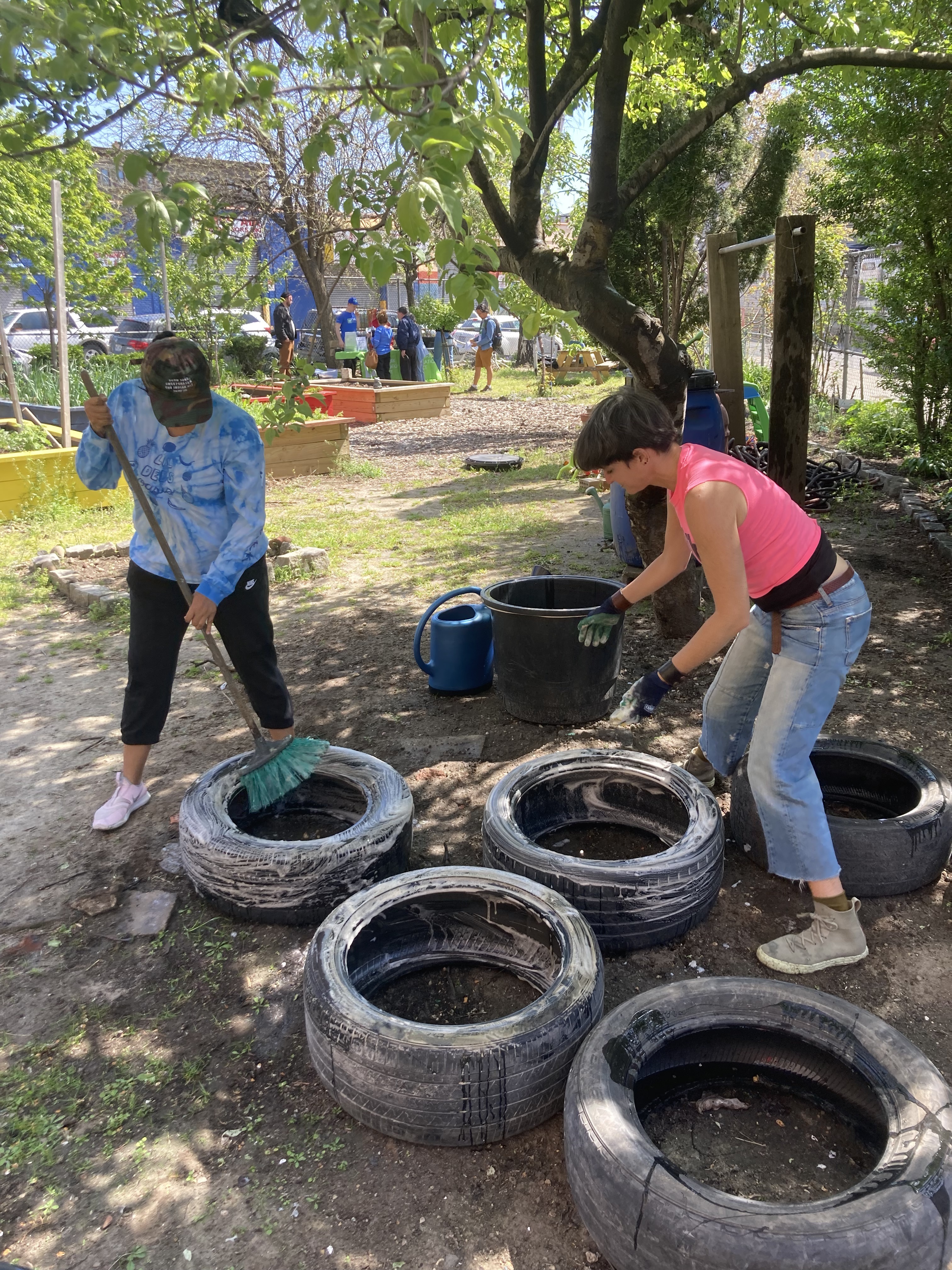
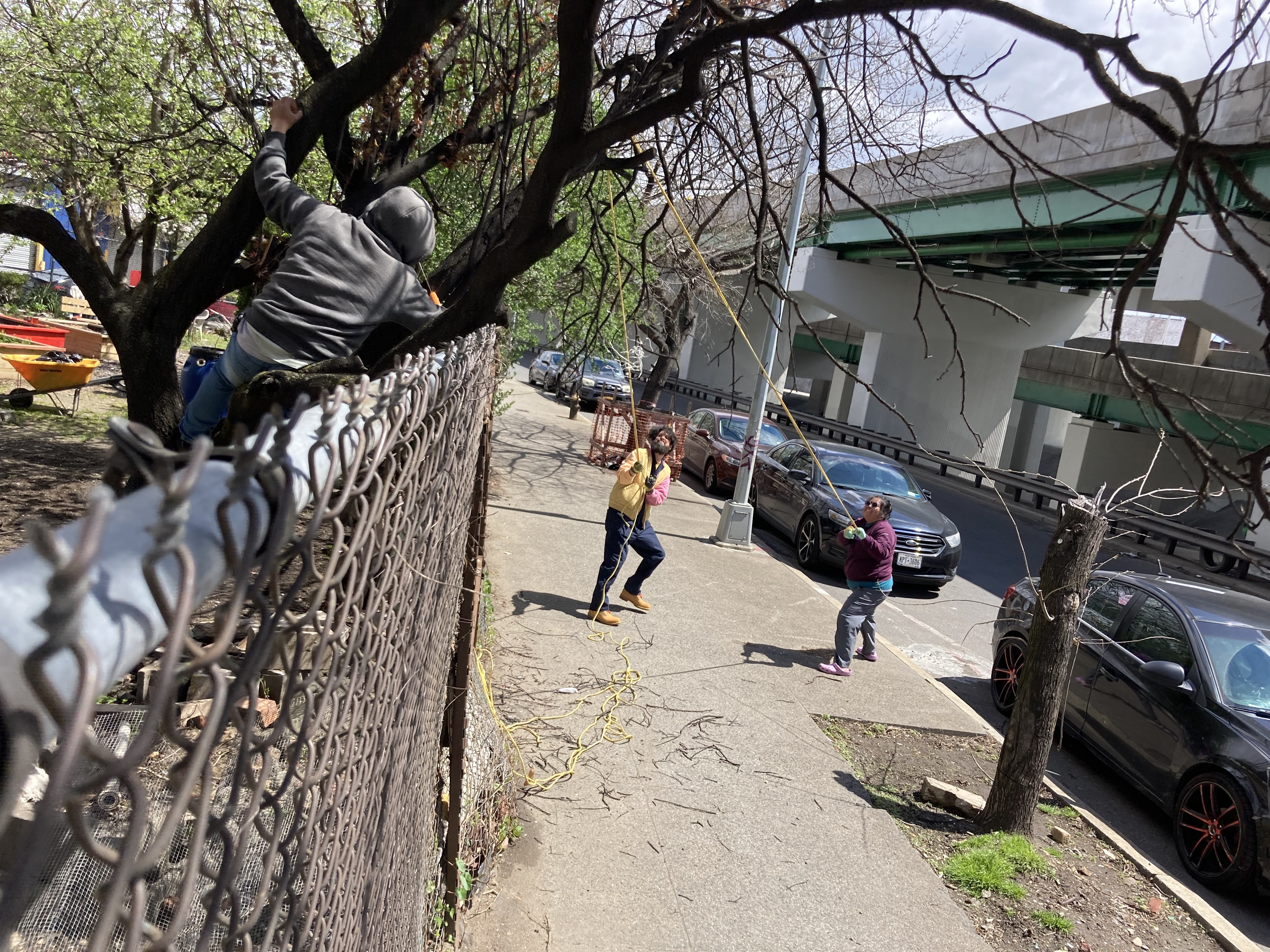
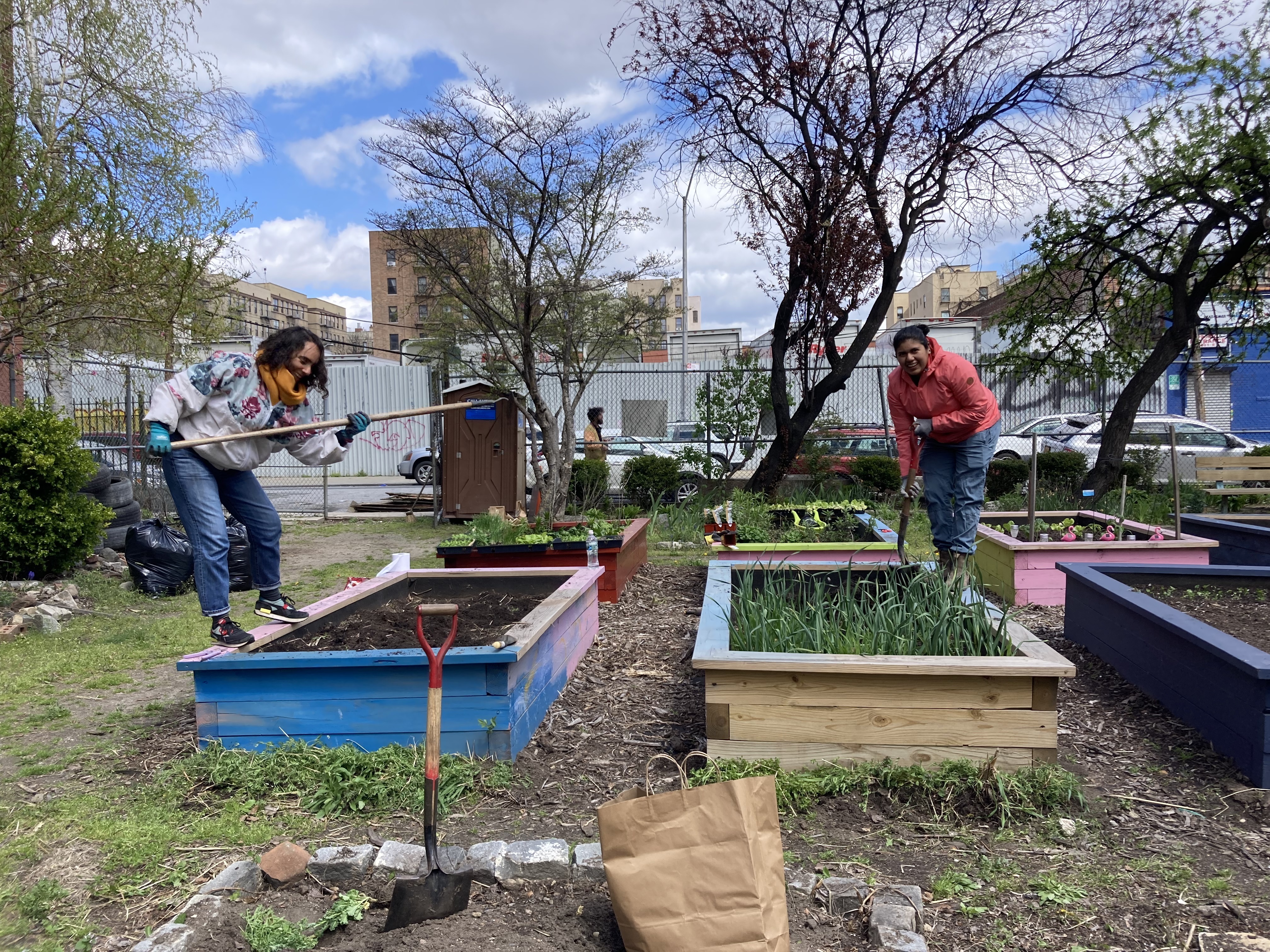
Because life goes on, and so we keep building archives in common to imagine and sustain life together.
